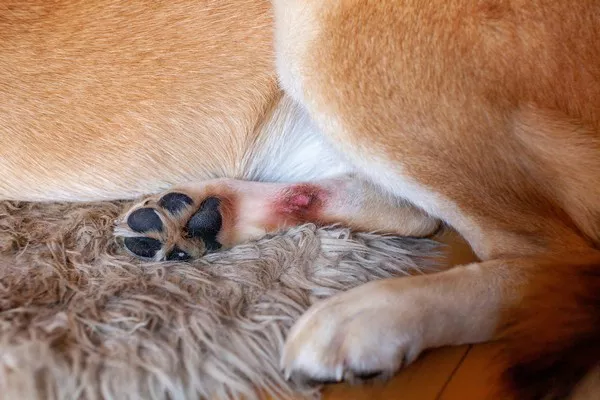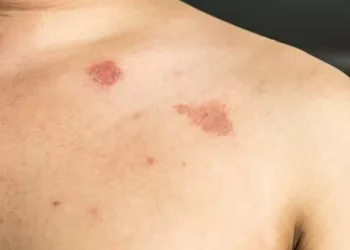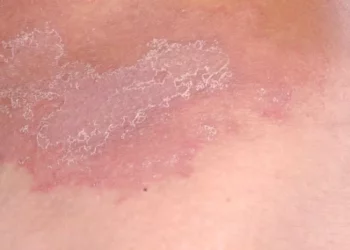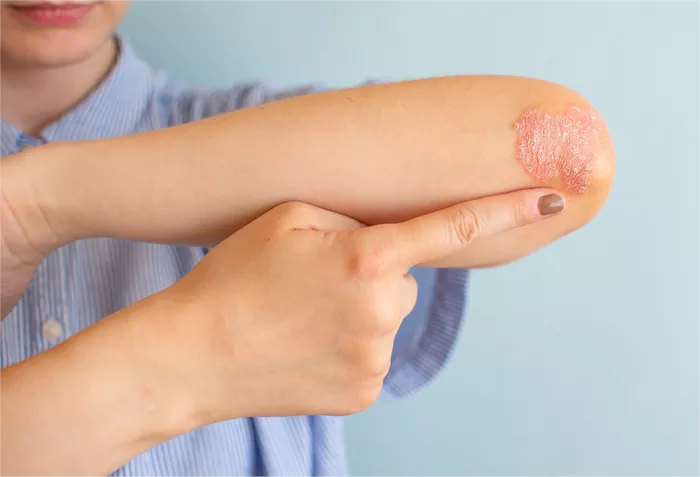Ringworm, despite its misleading name, is not caused by a worm but by a group of fungi known as dermatophytes. This common fungal infection affects the skin, hair, and nails of various animals, including dogs. Understanding how your dog can contract ringworm, recognizing the symptoms, and knowing how to prevent and treat it can ensure the health and well-being of your furry friend. In this article, we will explore the various aspects of ringworm in dogs to provide you with a comprehensive guide.
What is Ringworm?
Ringworm is a contagious fungal infection caused by dermatophytes, which thrive on keratin found in skin, hair, and nails. In dogs, the most common causative agents are Microsporum canis, Microsporum gypseum, and Trichophyton mentagrophytes. These fungi are zoonotic, meaning they can be transmitted between animals and humans.
How Do Dogs Get Ringworm?
Dogs can contract ringworm through direct or indirect contact with the fungal spores. Here are the primary ways your dog can get ringworm:
1. Direct Contact with Infected Animals
One of the most common ways dogs get ringworm is through direct contact with another infected animal. This can happen during play, grooming, or even brief encounters. In multi-pet households, if one animal has ringworm, it can quickly spread to others.
2. Indirect Contact with Contaminated Objects
Ringworm spores can survive on various surfaces for months. Your dog can pick up the infection by coming into contact with contaminated objects such as bedding, grooming tools, toys, or even your clothing. Visiting places where infected animals have been, like grooming salons, kennels, or dog parks, can also pose a risk.
3. Environmental Exposure
Fungal spores are present in the environment, particularly in warm and humid conditions. Dogs that spend a lot of time outdoors, especially in areas where other animals frequent, are at a higher risk of contracting ringworm. Soil contaminated with spores can also be a source of infection.
4. Human Transmission
Humans can carry ringworm spores on their skin or clothing and transmit them to their pets. If you or a family member has ringworm, it’s crucial to take precautions to prevent spreading it to your dog.
5. Immune System Factors
Dogs with weakened immune systems are more susceptible to ringworm. Puppies, elderly dogs, and those with underlying health conditions are at a higher risk. Stress, poor nutrition, and other illnesses can also compromise your dog’s immunity, making them more vulnerable to infections.
SEE ALSO: What Are the Side Effects of Ringworm in Humans
Recognizing Ringworm Symptoms in Dogs
Early detection of ringworm is essential for effective treatment and preventing the spread of the infection. Symptoms can vary but typically include the following:
1. Skin Lesions
Ringworm often presents as circular, red, or scaly patches on the skin. These lesions may be itchy and can cause hair loss in the affected area. The lesions can vary in size and may appear on the head, ears, paws, and limbs.
2. Hair Loss
Patchy hair loss, particularly around the infected areas, is a common symptom of ringworm. The hair may break off at the skin’s surface, giving the coat a rough appearance.
3. Redness and Inflammation
The infected areas may become red and inflamed, leading to discomfort and irritation for your dog. In some cases, secondary bacterial infections can develop, exacerbating the symptoms.
4. Scaling and Crusting
As the infection progresses, the affected skin may develop scales or crusts. These can be dry and flaky, contributing to the overall discomfort.
5. Itching
Not all dogs with ringworm will experience itching, but it can occur. The severity of itching varies depending on the individual dog and the extent of the infection.
Diagnosing Ringworm in Dogs
If you suspect your dog has ringworm, it’s essential to consult your veterinarian for a proper diagnosis. Several diagnostic methods can confirm the presence of ringworm:
1. Wood’s Lamp Examination
A Wood’s lamp, or ultraviolet light, can help identify certain types of ringworm. When the infected area is exposed to the light, the fungi may fluoresce, appearing as a greenish glow. However, not all ringworm species fluoresce, so this method is not foolproof.
2. Microscopic Examination
Your veterinarian may take a sample of your dog’s hair or skin and examine it under a microscope. This can help identify the presence of fungal spores or hyphae, confirming the infection.
3. Fungal Culture
A more definitive diagnostic method is a fungal culture. This involves taking a sample from the suspected area and allowing it to grow in a laboratory setting. Although it can take several weeks for results, a culture provides a precise identification of the fungus involved.
4. Skin Biopsy
In rare cases, a skin biopsy may be necessary to diagnose ringworm. This involves taking a small sample of the affected skin and examining it histologically. This method is usually reserved for chronic or severe cases.
Treating Ringworm in Dogs
Once ringworm is diagnosed, prompt treatment is essential to eliminate the infection and prevent its spread. Treatment usually involves a combination of topical and systemic therapies:
1. Topical Treatments
Topical antifungal creams, ointments, or shampoos are commonly used to treat ringworm. These products are applied directly to the affected areas to kill the fungi. Regular bathing with medicated shampoos can help reduce the number of spores on your dog’s coat.
2. Systemic Medications
In more severe cases or when topical treatments are insufficient, your veterinarian may prescribe oral antifungal medications. These systemic drugs work from within to combat the infection. Commonly used medications include griseofulvin, itraconazole, and terbinafine.
3. Environmental Decontamination
To prevent reinfection and the spread of ringworm, it’s crucial to thoroughly clean and disinfect your dog’s environment. Wash bedding, toys, and grooming tools with hot water and a fungicidal solution. Vacuum and clean your home regularly to remove fungal spores from carpets and upholstery.
4. Isolation
Isolating the infected dog can help prevent the spread of ringworm to other pets and humans in the household. Keep the affected dog in a separate area and minimize contact until the infection is under control.
SEE ALSO: Does Disinfectant Spray Kill Ringworm?
Preventing Ringworm in Dogs
Prevention is always better than cure. Here are some steps you can take to reduce the risk of your dog contracting ringworm:
1. Maintain Good Hygiene
Regular grooming and bathing can help keep your dog’s skin and coat healthy, reducing the risk of fungal infections. Use clean grooming tools and wash your hands thoroughly after handling your pet.
2. Clean Living Environment
Keep your dog’s living environment clean and dry. Regularly wash bedding, toys, and other items your dog frequently uses. Vacuum and clean your home to minimize the presence of fungal spores.
3. Avoid Contact with Infected Animals
Be cautious when allowing your dog to interact with other animals. Avoid contact with pets that show signs of ringworm and keep your dog away from areas known to be contaminated.
4. Boost Immune Health
Ensure your dog has a balanced diet and receives regular veterinary care to maintain a strong immune system. A healthy immune system can help fight off infections, including ringworm.
5. Regular Veterinary Check-Ups
Regular veterinary check-ups can help detect and address health issues early. If your dog is at higher risk for ringworm, discuss preventive measures with your veterinarian.
Ringworm in Humans: A Zoonotic Concern
Since ringworm is zoonotic, it’s important to be aware of the risk to humans. If your dog has ringworm, you and your family members may also be at risk of infection. Here are some tips to protect yourself and others:
1. Practice Good Hygiene
Wash your hands thoroughly after handling your dog or cleaning their environment. Avoid touching your face, especially your eyes, nose, and mouth, until your hands are clean.
2. Wear Protective Clothing
When treating your dog’s ringworm or cleaning contaminated areas, wear gloves and protective clothing. This can help minimize direct contact with the fungal spores.
3. Seek Medical Attention
If you or a family member develop symptoms of ringworm, such as red, itchy, or scaly patches on the skin, seek medical attention promptly. Early treatment can prevent the infection from spreading.
4. Educate Family Members
Educate everyone in your household about the importance of hygiene and the risk of ringworm. Ensure that all family members are aware of the preventive measures to avoid contracting or spreading the infection.
Conclusion
Ringworm in dogs is a common but manageable condition. By understanding how your dog can get ringworm, recognizing the symptoms, and taking preventive measures, you can protect your pet and household from this fungal infection. If your dog does contract ringworm, prompt veterinary care and thorough environmental decontamination are crucial to effectively treat the infection and prevent its spread. With proper care and vigilance, you can keep your dog healthy and ringworm-free.
Related Topics:


























